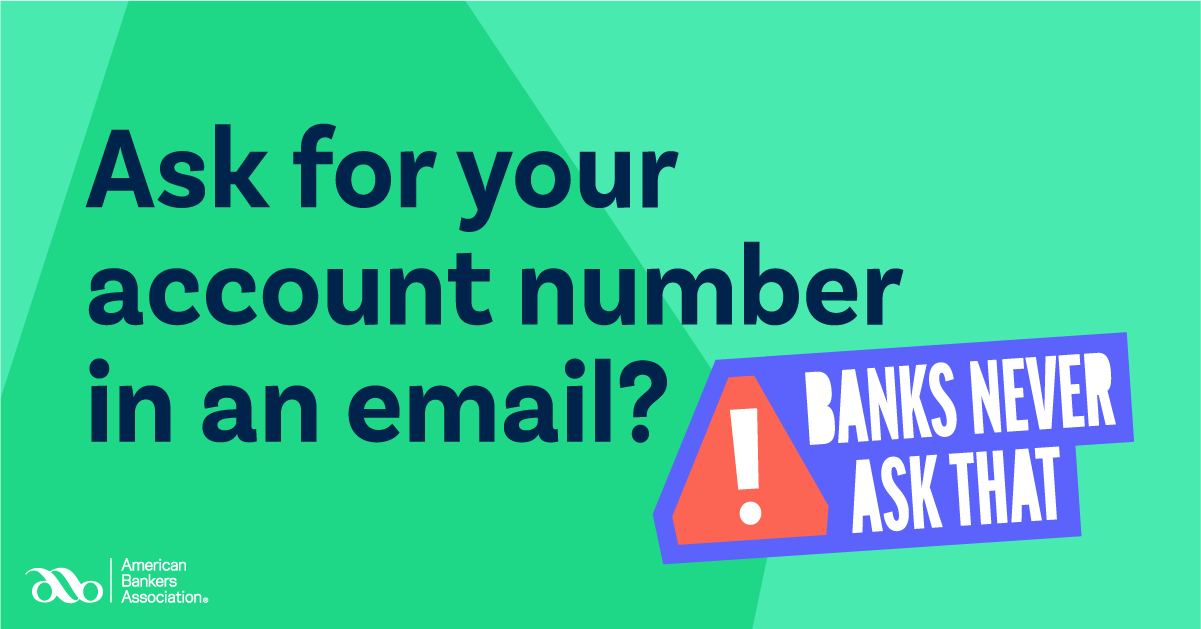Bank of Utah Press Release
Bank of Utah is joining the American Bankers Association in launching an industry-wide Banks Never Ask That campaign in October during National Cyber Security Month to educate consumers about the persistent threat of phishing scams. The FTC estimates that consumers lost $1.9 billion to phishing schemes in 2019 and the ongoing pandemic has only increased that threat.
Bank of Utah will be sharing Banks Never Ask That campaign videos, animated GIFs and consumer tips on social media and in bank branches to help consumers identify bogus bank communications asking for sensitive information such as passwords and social security numbers.
Because cybersecurity education and fraud awareness can often be forgettable to consumers, the ABA has used humor to be more memorable. Campaign advertising asks funny questions that banks would never ask such as “Do you believe in aliens?,” alongside sample phishing questions that again, banks would never ask, such as: “We’ve spotted some unusual activity on your account, can you please verify your username and password?”
According to Bank of Utah Senior Vice President of Information Technology Brian Stevens, “Every day we see new phishing scams targeting business owners and consumers that can catch people unaware and lure them into sharing personal information and ultimately paying money to a fraudster.”
“If a person’s computer does get compromised through phishing, we often see hackers picking up on an existing transaction between the hacked person and his or her bank, or between a hacked business and a vendor. In both instances, the hacker sends emails impersonating the hacked person and asking the bank to transfer money or asking a vendor to make a payment for services to what turns out to be a bogus account,” added Stevens.
Bank of Utah’s internet security expert suggests two tips: 1) never share your bank username, password or social security number by email or phone with your bank or anyone else, and 2) if you receive a request for payment from one of your vendors that seems out of the ordinary, pick up the phone and talk to a person you know and trust at that organization to make sure the request for money is legitimate.
Consumers can get more information about phishing scams at www.BanksNeverAskThat.com, which includes the #BanksNeverAskThat quiz, videos, phishing red flags, tips and FAQs. Bank customers who take the quiz are entered into a sweepstakes to win the $100 prize given each week during the campaign — or the $1,000 grand prize — courtesy of the American Bankers Association. Bank of Utah provides additional cyber security information at https://www.bankofutah.com/

